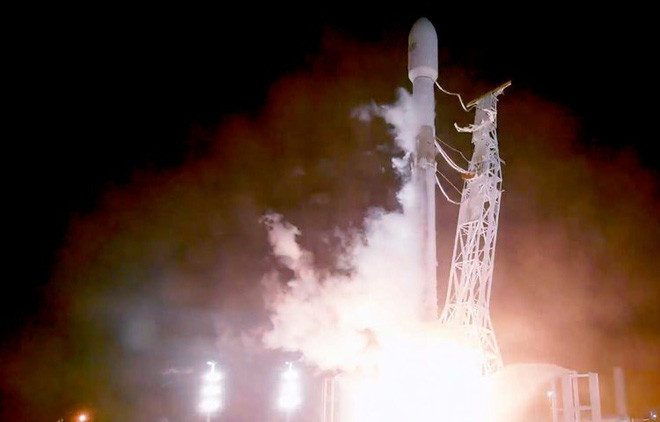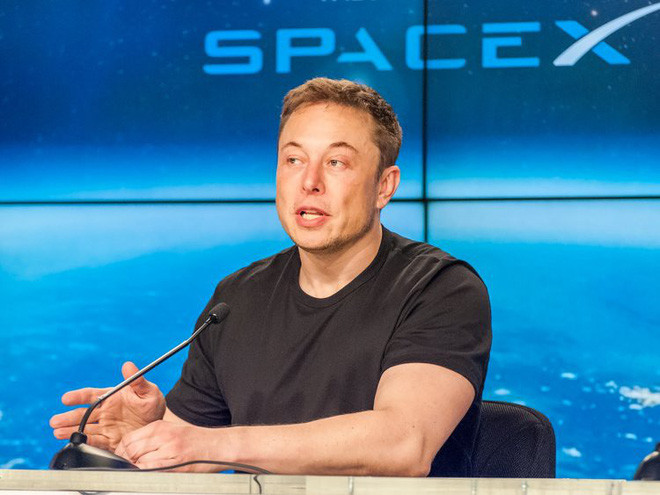SpaceX successfully launched 2 Internet broadcasting satellites, testing the global Internet broadcasting project
Starlink is an extremely ambitious project of billionaire Elon Musk, with an unprecedented large scale.
On the morning of last Thursday, SpaceX successfully launched the Falcon 9 rocket carrying a Spanish radar satellite and the first two test satellites of the Starlink project. This is also one of the great ambitions of billionaire Elon Musk.
Starlink is a special project, with an unimaginable scale. Billionaire Elon Musk wants high-speed internet coverage around the world, with a system of 12,000 satellites spanning Earth's orbit.

Falcon 9 missiles carry the first 2 test satellites of the Starlink project.
In the coming years, SpaceX expects to launch 4,425 satellites into orbit 1,100-1,200km from Earth, and about 7,500 other satellites will be launched into low orbit. That is about 12,000 satellites, twice the total number of satellites ever launched in history.
Elon Musk and SpaceX have not disclosed much information about the Starlink project, since it was first announced in 2015. However, due to the FCC licensing, some details of the project are still detailed. reveal.
According to some documents that the FCC announced this month, the Federal Communications Commission granted SpaceX permission to launch the first two test satellites Microsat-2a and Microsat-2b . Two satellites were launched on Earth's low orbit using Falcon 9 reuse missiles, from Vandenberg Air Force Base in California.

Starlink is an extremely ambitious project of billionaire Elon Musk, high-speed internet coverage across the Earth with 12,000 satellites.
Billionaire Elon Musk shared on his Twitter page: 'Today, Falcon missiles brought SpaceX's two experimental satellites to serve the global internet coverage project. If successful, Starlink project will start to serve. '
Although there is no official confirmation, some images from Spain's radar satellite launched in this mission confirmed SpaceX's two test satellites successfully entering Earth's orbit. .

Two test satellites were successfully launched.
However, the attempt to restore part of the Falcon 9 rocket has failed. This is a re-used rocket that was successfully launched and restored by SpaceX in August last year. SpaceX said it did not attempt to restore the entire Falcon 9 missile in this mission, but only hoped to restore the $ 6 million carbon fiber main structure.

SpaceX's Mr.Steven ship to welcome the $ 6 million structure of Falcon 9 missiles.
Elon Musk said: 'We will try to capture this giant structure of Falcon 9 when it falls back to Earth at 8 times the speed of sound. This structure has accelerators for deceleration and a navigation system. We will use a ship called Mr. Steven has a giant net to try to catch this structure when it comes back. '
As a result, the calculation of the structural position falling on the Pacific Ocean has been several hundred meters wrong. Although this effort failed, SpaceX still showed that the idea was completely feasible. Besides, the most important thing is the mission to launch the first two test satellites of the Starlink project.
- SpaceX launches satellite Internet, testing the global Internet broadcasting project
- SpaceX for the second time launches a satellite project to provide high-speed Internet
- Cover the Internet with huge balloons
- SpaceX launched 60 satellites that provided high-speed Internet for the entire world
- Use unmanned aerial vehicles for global internet transmission
- SpaceX successfully launched 10 Iridium Next satellites into space
- Astronomers worry: SpaceX's satellite array can ruin the night sky
- Low-cost satellite Internet for the poor
- SpaceX successfully launched the SES-9 satellite into orbit, failing to land missiles on barges
- SpaceX for the 50th time successfully launched the Falcon 9 rocket on Earth's orbit
- SpaceX continues to successfully launch Falcon 9 missiles
- The project of 180 satellites provides Google's internet
 Van Allen's belt and evidence that the Apollo 11 mission to the Moon was myth
Van Allen's belt and evidence that the Apollo 11 mission to the Moon was myth The levels of civilization in the universe (Kardashev scale)
The levels of civilization in the universe (Kardashev scale) Today Mars, the sun and the Earth are aligned
Today Mars, the sun and the Earth are aligned The Amazon owner announced a secret plan to build a space base for thousands of people
The Amazon owner announced a secret plan to build a space base for thousands of people